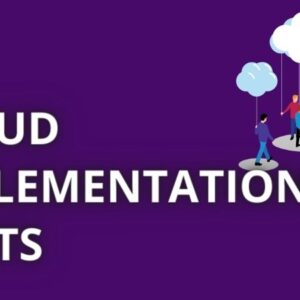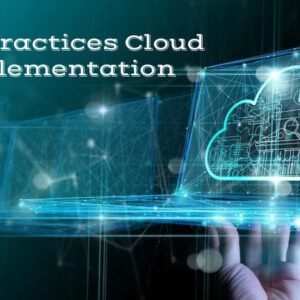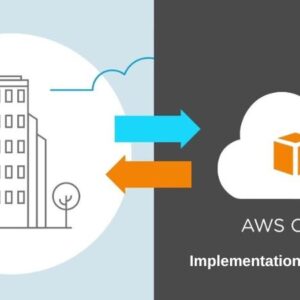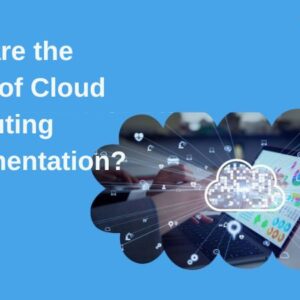If you are considering pursuing a career in data science and are looking into the many professional tracks available in the field, it’s likely you’ve seen data analyst listed as one possible option. This is one of the most popular big data professions out there, and is also one of the most sought after, as data analysts are valuable to a huge range of businesses.
To start a career as a data analyst, it is typically expected that you hold a Master’s in Data Analytics (which sometimes is a concentration within a larger Master’s in Data Science program). This demonstrates that you have both the knowledge and technical capabilities needed to perform the impactful role a data analyst has within their company.
If you hold a Master’s in Data Analytics, you’ll be a candidate for top opportunities in the field of big data.
You can pursue a master’s with a bachelor’s degree in any subject, though students tend to have majored in subjects like computer science, statistics, and mathematics as undergrads. What’s most important is that you have the foundational knowledge of the most popular programming languages (in particular Python or Java), multivariate calculus, and at least one type of advanced mathematics.

If you have the qualifications to pursue an online Master’s in Data Analytics, read on to learn what it takes to pick the right program for you.
For information on selecting an in-person data science master’s program, take a look at our guide here.
In This Guide
- Step 1 – Choose Focus Industry
- Step 2 – Determine Timeline
- Step 3 – Review Curriculum
- Step 4 – Consider Cost
- Step 5 – Determine Admission Criteria
- Step 6 – FAQs
- Step 7 – Review Schools

Work With Data, Mathematics, and Statistics
If you enjoy working with data to analyze trends via business intelligence (BI) or other analytical software programs — but you aren’t interested in building machine learning models — then data analytics is likely the career path for you. As the field evolves, the aforementioned building of machine learning models may become a requirement of certain data analytics jobs. But, as of now, that domain is still relegated to the field of data science and machine learning engineers.
For data analyst jobs you’ll still need a solid background in both math and, more specifically, statistics. While there are plenty of statistical analysis and BI programs on the market (e.g., SPSS, SAS, Tableau, Microsoft Power BI, etc.), you should understand the what, why, and how of the underlying statistical algorithms used for analysis. Indeed, the more skill you have in math and statistics, the more likely you’ll be viewed as a prime candidate by employers. Eventually, this may lead you to secure a job as a data scientist — if that is your goal.
Data Analyst Salary and Job Growth Statistics
One of the leading factors drawing so many people to pursue work in the data sciences is the exceptional pay rate and job growth predictions for the field overall, which considerably outrank the majority of other industries. This is certainly true for data analysts, who are valuable to companies in a huge range of industries, including Business Intelligence (BI), IT, finance, healthcare, entertainment, retail, and more.
Because data analysts provide such valuable services to businesses, they are remunerated well for their work. According to the Bureau of Labor Statistics, operations research analysts earn a median annual salary of $82,360 per year, which already surpasses the national average across industries. In many industries, baseline pay for data analysts gets even higher: those working for the federal government earn a median annual salary of $120,950, while those in scientific services, manufacturing, and company management earn median annual salaries in the range of $94,070 – $99,790.
If the highly attractive salaries for data analysts aren’t enough to entice you to the field, the tremendous job growth predictions may seal the deal. The Bureau of Labor Statistics reports an anticipated job outlook of 23%, more than double the average for American occupations overall. Indeed, this is closely linked to the big data boom that is only expected to accelerate over the next decade. These numbers should come as great encouragement to those considering entering the field, as they suggest that data analysts who start their careers now are likely to find great opportunities with high pay for years to come.
Steps to Choosing an Online Master’s in Data Analytics Program
Step 1: Research and Choose an Industry
Some Master’s in Data Analytics candidates may simply enjoy working with massive amounts of data, and this is their most compelling reason for becoming a data analyst. However, as stated above, there are certain fields where more job opportunities will be present.
As a general rule, the finance and insurance industries tend to pay the most in terms of salary. If you have no interest in either of those fields (keep in mind these are intense number crunching sectors — think actuarial science and trying to make precise predictions as to which asset classes are going to move up or down), then perhaps the fields of health care, cybersecurity, manufacturing, education or marketing might be more appealing.
You can shift gears as you move through the Online Master’s Degree in Analytics program. But, ask yourself what you can do workwise, day in and day out, that meets your financial, mental, and work-life balance requirements.
Step 2: Identify Your Timeline
Online Master’s Degrees in Data Analytics vary in length from around 12 to 36 months, depending on the university. Goal setting is a significant factor in being able to remove any distractions that may arise (meaning those within your direct control). Family and current work obligations may require that you choose an extended part-time program. Also, if you don’t currently have the minimum math or statistics requirements for a particular program, then you might need to invest additional time in self-study or taking requisite courses.
Once you’ve completed the degree, there is a high probability that it may take three months or more to land a data analytics job (again, this depends on several factors that are unique to your current employment status and analytical skill level). So, incorporate at least an additional three months — if not longer — into your timeline.
Step 3: Review Curriculum and Create a List of Ideal universities
You can find all types of universities offering an Online Master’s in Data Analytics: Ivy League, state schools, and private for-profit institutions. The truth of the matter is that completing a degree from an Ivy League institution does tend to place you at the top of the employee candidate pile. On the other hand, they aren’t generally as affordable as state school options. There are also Master’s Degrees in Business Analytics and Master’s Degrees in Business Intelligence. Both are analytics degrees, but their specific curriculum will vary.
For example, an Online Master’s in Business Analytics may lean towards being a quantitative MBA through coursework in risk management, consumer behavior, operational finance, and managing disruptive technologies. A Master’s in Business Intelligence might include courses in IT governance, information systems administration and management, and business intelligence in financial modeling.
Most, if not all, of the programs — whether Data Analytics, Analytics, Business Analytics or Business Intelligence — will cover data mining, predictive modeling, advanced statistical methods, and database systems. Additional electives or attaining a dual degree (usually by adding an MBA to the Master’s Degree in Analytics) are options to consider as well. Review the curriculum for each university on your list to determine if the course offerings interest you.
Begin your list with 5 or 6 possible universities. Rank your list beginning with your ideal scenario first. Is cost the most important factor? Or are you seeking the most highly ranked university that offers an Online Master’s in Data Analytics program? Does the curriculum interest you? Is there an option to focus on a specific track, e.g., health analytics, geographic information systems (GIS), cybersecurity?
Here is where you start weighing all of the factors in comparison to one another:
- Prestige
- Accreditation
- How long the program has been offered
- Total length of the program
- Job placement opportunities (some universities will have you complete a project with an industry partner)
Your rankings may change as you move through step 4.
Step 4: Consider the Total Cost of the Program
When it comes to cost, review this component carefully. Many universities will list the total cost of the program, but you’ll likely pay either per course or per credit. There may also be other “fees” that aren’t included in the total cost listed. Check the university’s tuition page — many of them provide a tuition calculator. Accredited institutions will provide information on loan options, both public and private.
If you are considering the student loan option, it’s wise to do so carefully. The student loan issue continues to plague many graduates. Certainly, by earning a graduate degree in analytics, you’re substantially increasing your ability to obtain an analytics job with a good salary. But, the job opportunities may not be concentrated in your current city — which means you may need to move. Remote work for data analytics is still in its infancy. Most employers want you to be in-house. So, those are additional and highly impactful possibilities to think about when analyzing the total cost above and beyond just the program itself.
Step 5: Determine the Admission Criteria
GRE scores, GMAT scores, essential math and programming courses, statistics coursework, and applications fees are just a few of the possible admission requirements you’ll see for each of the programs below.
Usually, but not always, the more prestigious the school, the more requirements they’ll have you adhere to. Many universities may also ask for academic or employer recommendations.
If you’re not the greatest of standardized test takers (this is, in fact, a real issue with many students), then a program that waives the GRE is probably your best bet — if that option is available. The below list currently has more than ten schools offering a Data Analytics Master’s Online where the GRE is not required.
Should your university list consist of only schools that require the GRE, then this will be additional time and cost that you’ll need to incorporate into your timeline and total program cost.
Students who are not native English speakers may also need to take the IELTS or TOEFL to establish their English language fluency.
Step 6: FAQs
Do I have to get a master’s degree to become a data analyst?Generally speaking, yes, a master’s degree is necessary to pursue a career in data science. This is because the skills needed to become a data analyst are advanced, and prospective employers will need something to vouch for your abilities. Most full-time data analyst positions require the level of competency gained from a master’s program, so that is what will be expected of you in order to enter the field competitively.
Will I need to pursue further schooling after getting a master’s?No. A master’s degree is the standard level of education for data analysts. Some students – those who are especially interested in research and have the time to take on even more school – choose to pursue their PhD. in Data Analytics, which typically includes all of the coursework of a data science master’s program with additional testing and a dissertation. To learn more about a Data Analytics PhD., take a look at our guide here.
Why pick an online degree program rather than an in-person option?Both online and in-person degree programs have their advantages and disadvantages. One great advantage of online degree programs is their convenience. For those who are continuing to work while in school, virtual programs can be the thing that makes it possible to pursue school and a career simultaneously. Many online degree programs provide coursework that is left for you to do on your own time, meaning it is far easier to shape your experience around your schedule.
Online programs can also be hugely convenient if you don’t live in a place where there are in-person options and don’t want to move in order to pursue your degree. Since so much of the work of a Data Analytics Master’s program is done on the computer anyway, this would not be a huge loss in terms of your academic experience.
What is the difference between a data analyst and a data scientist?The distinctions between data science and data analysis can be hard to understand, but they are different individual tracks through the world of big data and even through advanced degree programs. (To make matters even more confusing, data analysis is frequently a concentration within a Data Science Master’s Degree, but if you choose this as your area of specialty, you will gain the skills to become a data analyst, not a data scientist.)
In short, data analysts typically seek answers to specific pre-designated questions about a business’ operations, while data scientists work with raw data to evaluate what questions it might even answer. In this way, you can see that data scientists arrive earlier in the data-processing timeline than data analysts do. For more complete information on the difference between data analysts and data scientists, take a look at our guide here.
Step 7: How to choose an Online Master’s in Data Analytics Program
Once you’ve established that a particular Online Master’s in Data Analytics program fits all of your criteria, e.g., price/cost, curriculum, length of time, school ranking, admissions requirements, and any other student resources such as job placement, then it’s time to apply.
You might want to follow the same recommendation that is offered to students who are choosing a Bachelor’s Degree program: narrow your school list down to three choices and apply to all three. This is especially critical if you are applying to an Ivy League or highly ranked school as they are widely known for being highly competitive when it comes to student admission rates.

Schools Offering Data Analytics Master’s Programs Online
Boston University– Boston, MassachusettsOnline Master of Science in Computer Information Systems Concentration in Data Analytics
This 40-credit degree program consists of 5 Core Curriculum courses and 5 courses of the Concentration Elective Requirements.
Students of this program will learn to generate effective visual presentations of data and examine concepts and techniques of data mining.
After completing the Intro to Computer Information Systems prerequisite, students can begin classes in Business Data Communication and Networks, Database Design and Implementation for Business, Information Systems Analysis and Design, and Strategy Management.
Program Length: 40 CreditsDelivery Method: OnlineGRE: Not Required2020-2021 Tuition: $905 per credit
View Course Offerings
Brandeis University– Waltham, MassachusettsMaster of Science in Strategic Analytics Online
Brandeis University’s Strategic Analytics program involves 30 credits consisting of 7 required courses and 3 electives. Foundation courses teach data science, business intelligence, and analytics while elective courses build upon specific professional skill sets tailored to the interests of each student.
The online curriculum allows working professionals to further their careers at their own pace.
Program Length: 30 CreditsDelivery Method: OnlineGRE: Required2020-2021 Tuition: $1,179 per credit
View Course Offerings
Clarkson University – Potsdam, New YorkMaster of Science in Data Analytics
Clarkson University built a Master of Science in Data Analytics curriculum that works for any student, whether they prefer to take full-time classes on campus, part-time classes online, or full-time classes online.
In 33 credits, students take five 3-credit core graduate courses, four 3-credit graduate elective courses, and one 6-credit capstone course based on a sponsored project. Typically, the program takes three semesters to complete but can be modified for online and part-time students.
The capstone course centers on a sponsored data analytics project with an interdisciplinary team. The projects vary slightly between students but typically consist of a 2-unit seminar with a 4-unit project comprised of engineering curriculum. Depending on the parameters of the capstone, the project could be on-site with intensive fieldwork.
Program Length: 36 CreditsDelivery Method: Online or CampusGRE: Required or GMAT2020-2021 Tuition: $1,606 per credit
View Course Offerings
Columbia University – New York, New YorkMaster of Science in Applied Analytics
Their Master’s in Applied Analytics is — technically — Columbia University’s version of a Business Analytics graduate degree. However, this program is one of the pricier options: current per “point” tuition is $2,118, and the total program is 36 points (their version of a single credit hour). There is a less expensive option: in partnership with edX, Columbia University offers a MicroMasters in Business Analytics, which is a 12-week program for right around $1,300.
Program Length: 36 creditsGRE: RequiredDelivery Method: Online or Campus2020-2021 Tuition: $2,182 per credit
View Course Offerings
Colorado State University – Greenwood Village, ColoradoOnline Master of Science in Data Analytics
Students of the program will study data warehousing, data mining and visualization, business intelligence, business analytics, predictive analytics, and enterprise performance management.
Students have the choice of specializations in Accounting, Applied Business Management, Contemporary Practices in K-12 Online Learning, Criminal Justice Leadership, Cyber Security, English K-12 Educators, ELL, Finance, Fraud Management, Global Management, Healthcare Administration, and more.
Program Length: 39 CreditsDelivery Method: OnlineGRE: No2020-2021 Tuition: $500 per credit
Vew Course Offerings
Concordia University, St. Paul – St. Paul, Minnesota Master of Science in Data Analytics
Develop business acumen for leading organizations and solving real-world issues with data-backed solutions as well as skills for strategic and ethical decision making, gathering and storing big data, and generating and translating descriptive measures and statistical probabilities.
Expert faculty leads you through curriculum exploring testing techniques such as chi-square tests, simple linear or multiple regression, designing decision support systems (DSS), and tools such as Hadoop, Spark, and Splunk.
CSP’s Data Analytics Master’s offers an online asynchronous format where you can learn on your schedule, including a 4-month certificate option easily transferable into the master’s program.
Program Length: 30 creditsGRE: NoDelivery Method: Online2020-2021 Tuition: $625 per credit
View Course Offerings
Dakota State University – Madison, South DakotaMaster of Science in Analytics
At Dakota State University, the Master of Science in Analytics divided into four tracks to help focus and personalize the MSA degree. Students can focus on Business, Healthcare Analytics, Information Systems, or General. Each track has a specific set of courses to help students become experts in their field. Students may also opt to take more than one track or additional electives to broaden their skills.
Before applying to the program, students must complete a set of requirements. Students must possess a baccalaureate degree from an institution with full regional accreditation for said degree. Students must have a minimum undergraduate GPA of 2.7 on a 4.0 scale. Lastly, students must possess transcripts that show completion of courses in specific areas such as programming principles, database design and programming, and statistical principles. If students do not meet these requirements, they may need to take additional foundational courses.
Students who graduated from a U.S. institution with full regional accreditation are not required to take the GRE.
Program Length: 30 CreditsDelivery Method: OnlineGRE: No2020-2021 Tuition: $359 per credit (South Dakota Resident), $656 per credit (Non-Resident)
View Course Offerings
University of Findlay – Findlay, OhioMaster of Science in Applied Security and Analytics
Enhance your IT knowledge through Findlay’s Master of Science in Applied Security and Analytics Program.
Our advanced courses in leadership, big data analytics and cybersecurity will expand your business skills in strategic planning, finance, security and project management. Courses include a professional component and a technical component.
This program is offered on-campus and online and can be completed in two years.
Classes start in the fall and spring semesters each year.
Program Length: 33 CreditsDelivery Method: Online or CampusGRE: No2020-2021 Tuition: $743 per credit
View Course Offerings
George Mason University – Fairfax, VirginiaCertificate in Data Analytics Engineering
The online Graduate Certificate in Data Analytics Engineering from George Mason University readies you to use technology to create informed strategies and smart systems.
Take four courses in roughly 12 months to learn how to deliver a process that transforms raw data and places it into a decision-making context.
George Mason’s Volgenau School of Engineering has worked with Big Data and cybersecurity for more than 25 years. It’s led by faculty with rich industry experience and connections who draw upon both to teach a proven, career-focused curriculum.
Program Length: 12 creditsDelivery Method: OnlineGRE: Not required2020-2021 Tuition: $930 per credit
View Course Offerings
Georgia Institute of Technology – Atlanta, GeorgiaOnline Master of Science in Analytics
This 11-course (36-credit hour) program offers 3 tracks, can be completed in 2 to 3 years and costs only $275 per credit hour.
The Analytic Tools Track focuses on quantitative methodology.
The Business Analytics Tracks dives into the understanding, framing, and solution of problems in marketing, operations, finance, management of information technology, and human resources.
The Computational Data Analytics Track teaches a thorough understanding of big data with methods of acquiring, preprocessing, storing, managing, analyzing, and visualizing large datasets.
Program Length: 36 CreditsDelivery Method: OnlineGRE: No2020-2021 Tuition: $275 per credit
View Course Offerings
Harrisburg University – Harrisburg, PennsylvaniaMaster of Science in Analytics
This Analytics program studies all 3 areas of data analysis: predictive, descriptive, and prescriptive.
Through classes, students learn database management, statistical analysis and data mining, project management, and business intelligence.
HU’s faculty provide the knowledge that simple data analysis can be misleading and large-scale problems are not amenable to uninformed solutions.
Program Length: 21 CreditsDelivery Method: OnlineGRE: No2020-2021 Tuition: $800 per semester hour
View Course Offerings
La Salle University – Philadelphia, PennsylvaniaData Analytics M.S.
La Salle’s compressed program format allows students to focus on one subject area at a time while working through the degree in less than 2 years. Each course is 8 weeks in length with students taking 2 courses per semester.
With highly acclaimed faculty, students build methods in defining and coordinating big data courses, simulating predictive models and visualizing results.
By working across various industries, students gain diverse knowledge in their education.
Program Length: 30 CreditsDelivery Method: OnlineGRE: No202-0-2021 Tuition: $920 per semester hour
View Course Offerings
Northeastern University – Boston, MassachusettsOnline Master of Professional Studies in Analytics
Northeastern University offers an online Master of Professional Studies in Analytics that meets the increasing demand for knowledge, skills, and dispositions of analytics through behavior directly related to performance goals: Statistics/Mathematics, Analytics Systems Technology, Business Intelligence, Advanced Analytics, Business Process/Management, Business Analytics Agility, Communicating with Data, and Leadership/Data Governance, Policy and Ethics.
Graduates of the program will possess a strong portfolio of work samples that thoroughly demonstrate the range and depth of their new skills.
Throughout their studies, students will gain an extensive network of analytics professionals which they can connect with for employment and mentorship.
The online delivery of the program allows students to be interactive while remaining flexible with their work schedule.
Program Length: 1 year (full time) 2 years (part time)GRE: Not RequiredDelivery Method: Online2020-2021 Tuition: $36,945 per year
View Course Offerings
Notre Dame of Maryland University – Baltimore, MarylandMaster of Science in Business Analytics
At Notre Dame of Maryland University, students can enroll in an online M.S. in Analytics program which develops multidisciplinary competencies for careers in medical, government, nonprofit, and corporate organizations. The online curriculum includes eight computer studies courses, two math courses, and a business economics course. In total, students must complete 36-hours of credits in order to graduate.
Prospective students must have a baccalaureate degree and provide both a resume and official transcript in their applications. Additionally, students must write a 300-500-word essay on why they are interested in the program.
The master’s costs $570 per credit and applicants are encouraged to explore financial aid opportunities, such as Federal Pell Grants and Stafford Loans.
Delivery Method: OnlineGRE: NoTuition: $570 per credit
View Course Offerings
Oregon State University – Corvallis, OregonM.S. in Data Analytics
At Oregon State University, the Master of Science in Data Analytics program is built for the individual with analytics experience as well as the individual looking to change careers and become a data analyst.
With Oregon State, all classes are taught by full-time Oregon state faculty, not outside instructors. The Northwest Commission regionally accredits OSU on Colleges and Universities. Oregon State is a highly respected leader in the data science and statistics fields and remains well-connected with the industry.
The Ecampus at Oregon State remains ranked as one of the nation’s best providers of online education where Ecampus students receive the same diploma as on-campus students. In the 45-credit program, students take statistics core courses, computer science core courses, statistics elective courses, and a health analytics optional course. In order to be admitted to the data analytics program, students must have completed an undergraduate statistics course and understand study design, probability distributions, and the fundamentals of confidence intervals and hypothesis tests.
Program Length: 45 CreditsDelivery Method: OnlineGRE: No2020-2021 Tuition: $560 per credit
View Course Offerings
Pennsylvania State University – University Park, PennsylvaniaMaster of Professional Studies in Data Analytics
Penn State’s Data Analytics program requires 30 credits at $975 per credit.
Students gain knowledge in data mining, data modeling, data architecture, extraction, transformation, ETL, and business intelligence development.
Courses are designed so that students grow into experts in the data science industry with the ability to handle massive volumes of data.
Program Length: 30 CreditsDelivery Method: OnlineGRE: Yes2020-2021 Tuition: $1,025 per credit
View Course Offerings
Scranton University – Scranton, PennsylvaniaMaster of Science in Business Analytics
Through The University of Scranton’s online Master’s in Business Analytics, you’ll engage with innovative data examination tools that prepare you to use descriptive, prescriptive, and predictive analytics. As you progress through the program, you will learn to identify the data-backed solutions that drive business growth.
With the analytical tools you’ll gain from the online Master’s in Business Analytics program, you will be able to help businesses improve their operations and achieve their goals.
The program will help you master a variety of analytical methodologies, and gain a comprehensive understanding of data-driven business solutions.
Program Length: 30-33 CreditsDelivery Method: OnlineGRE: Yes2020-2021 Tuition: $965 per credit
View Course Offerings
Slippery Rock University – Slippery Rock, PennsylvaniaData Analytics M.S.
This program is 33 credits with the option of full-time for 10 months or part-time for 2 years. It is validated by alignment with the standards established by professional certificate programs.
Graduates receive a joint certificate in statistical applications and data analytics.
Students will be prepared for the CAP exam and have the opportunity to complete an internship.
Program Length: 33 CreditsDelivery Method: OnlineGRE: No2020-2021 Tuition: $516 per credit (Pennsylvania Resident), $526 per credit (Non-resident)
View Course Offerings
Southern New Hampshire University – Manchester, New HampshireM.S. in Data Analytics
The M.S. in Data Analytics program covers data mining, visualization, modeling, optimization, and ethical uses of data.
The program requires a total of 36 credits. SNHU offers a 25% tuition discount for U.S. service members, regardless of full or part-time status.
Program Length: 36 CreditsDelivery Method: OnlineGRE: Yes2020-2021 Tuition: $627 per credit
View Course Offerings
Texas A&M University – College Station, TexasM.S. in Data Analytics
Texas A&M University offers an M.S. in Analytics degree that is part-time for working professionals and available in traditional classroom format as well as online, both live and recorded.
In the 36-credit five-semester program, students must complete a list of requirements to graduate with the degree. As a prerequisite, students must have completed one statistics course with a C grade or better. Classes for the program include Regression Analysis, Business Data Base Systems, Methods in Multivariate Analysis, Marketing Engineering, Applied Analytics Using SAS Enterprise Guide, Methods in Time Series Analysis, plus more and a capstone project. Throughout the coursework, students dive into live case studies, not just hypothetical scenarios.
Program Length: 36 CreditsDelivery Method: OnlineGRE: Yes2020-2021 Tuition: $65,000 total cost
View Course Offerings
University of Illinois – Springfield, IllinoisData Analytics M.S.
The M.S. in Data Analytics is jointly administered by the Departments of Computer Science and Mathematical Sciences. As a result, students gain knowledge in mathematical theory, foundations of understanding fundamental principles behind data, and practical tools and techniques of processing data.
The capstone project will prove the knowledge and skills learned throughout the program by exercising methods of data storage, preprocessing, integration, and analysis.
Program Length: 36 CreditsDelivery Method: OnlineGRE: No2020-2021 Tuition: $369 per credit (in-state), $715 per credit (Non-resident)
View Course Offerings
University of Kansas – Overland Park, KansasMaster of Science in Applied Statistics and Analytics
The University of Kansas offers a Master of Science in Applied Statistics and Analytics program that consists of 30 credit hours, four foundation courses, four emphasis courses, two elective courses, and one comprehensive exam.
The program offers flexibility through an asynchronous course format, access to pre-recorded podcast video content, a graduate certificate option, the ability to virtually interact with students and instructors, and a 100% online delivery.
Download an Applied Statistics and Analytics Graduate Program Guide from the university website. Scholarships are available to residents of Johnson County.
Program Length: 30 creditsGRE: RequiredDelivery Method: Online2020-2021 Tuition: $700 per credit
View Course Offerings
Villanova University – Villanova, PennsylvaniaMaster of Science in Analytics
Villanova University built an online Master of Science in Analytics for a variety of people with different backgrounds.
Engineering, computer science or math undergraduates with technical backgrounds may want to understand business better or develop a business focus. Business undergraduates interested in learning advanced analytics techniques may wish to apply. Mid-career analysts may want to advance their education to solidify their educational credentials. Lastly, mid-career professionals may be interested in changing or developing one area or focus on their career or may be interested in changing careers altogether.
Throughout the Master of Science in Analytics program, students will learn to extract, analyze, interpret, and make confident business decisions from data while expanding their knowledge in all areas of analytics.
Program Length: 36 CreditsDelivery Method: OnlineGRE: Yes2020-2021 Tuition:$1,375 per credit
View Course Offerings
Western Governors University – Salt Lake City, UtahMaster of Science in Analytics
Western Governors University created a Master of Science in Data Analytics that doesn’t rehash classwork students already know.
Students may prove their skills and knowledge by passing assessments as soon as they know the subject well enough. In addition to earning a master’s degree, students will also earn the Oracle SQL Expert Certification and two SAS certifications.
The program consists of 32 competency units with a capstone project. Key subject areas in the program include statistics, data analytics, advanced SQL, data science tools, data mining, SAS programming, and advanced data visualizations.
Program Length: 32 CreditsDelivery Method: OnlineGRE: No2020-2021 Tuition: $3,540 per 6-month term
View Course Offerings
Yeshiva University – New York City, New YorkData Analytics and Visualization M.S.
Yeshiva University’s Master of Science in Data Analytics consists of 30 credits in both full-time and part-time format on campus.
Yeshiva features courses such as Visual Storytelling, where student analysts must present their data in useful and compelling manners. The course combines heuristics for data presentation by creating spreadsheet charts with data from a variety of sources.
In Data Product Design, students learn analytical frameworks for using data in the service of customer insight, customer development, value proposition refinement, and product development.
Applicants to the program must take the Challenge Exam to identify proficiency in math, spreadsheets, databases, and programming. It is used to evaluate an applicant’s readiness for the Data Analytics and Visualization program.
Program Length: 30 CreditsDelivery Method: OnlineGRE: Yes2020-2021 Tuition: $1,090 per credit
View Course Offerings





